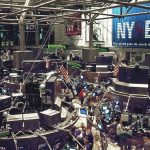And I was ’round when Jesus Christ
Had his moment of doubt and pain
Made damn sure that Pilate
Washed his hands and sealed his fate
– The Rolling Stones, “Sympathy for the Devil”
Health experts recommend washing hands frequently as a protection from Covid-19. Investors should not wash their hands of the planet’s problems.
The coronavirus pandemic is threatening lives, straining healthcare systems, and the economy. Markets are tanking and there is risk of a serious recession.
This is testing the resilience of a globalized economy and of social and political infrastructure in every country. It could affect the sustainability agenda and have marked consequences for responsible investors. The length and depth of the pandemic and economic crises will have an impact.
It’s worth remembering that the Great Financial Crisis of 2008 took an immediate toll on the willingness of governments to address climate issues. It was partly responsible for the failure of COP15 in Copenhagen in 2009. The ensuing recession hurt individuals and businesses across the globe, deepening inequalities, reducing savings and public finances, and with that the capacity of individuals and governments to handle crises of all kinds. While markets have grown steadily since then up to last week, the consequences of the crisis are still being felt.
Turning point
Yet the crisis also marked a starting point of sorts for mainstream environmental, social and governance, or ESG, investing. With the financial system and global governance in question, the public and institutional investors understood the need to explore new ways to generate sustainable returns and new responsibilities for the private sector.
This gave ESG a license to operate. Eleven years onward, studies report global ESG assets upwards of $40 trillion as well as $80 trillion committed to the Principles for Responsible Investment. There have been longstanding questions about the nature of these commitments and the lack of visible outcomes to date could make 2020 a moment of truth.
Many of the questions of 2009 remain unresolved. The climate crisis is more acute than ever. So are income inequalities. In America, the median household holds $400 in savings and the country has very little in the way of a social safety net. Things are slightly better in Europe but the lack of investment in social infrastructure over the past decade and the uncertain job market have contributed to discontent, from Brexit to the Gilets Jaunes in France. Political uncertainty has gown, shaking the foundations of democracy in places.
An economic downturn risks increasing global anxiety and populist sentiments. Given the lack of interest in environmental issues from Bolsonaro, Trump, and others this does not bode well for COP26 at the end of the year and for the already meager public finances to support the energy transition.
Decision time
There are several scenarios for ESG. None is written in stone and all involve specific choices from stakeholders. These might not play out in the same way in different parts of the world, but globalization means that local consequences will have global resonance.
2020 could mark the death knell of ESG. This is the darkest scenario for ESG and could set back investor responsibility for a generation. Institutions and the public turn would their back on private sector responsibility, having witnessed its failure.
Mistrust would come from opposing sides: disenfranchised individuals, NGOs and civil society who are keen on addressing systemic environmental and social problems, advocates of stronger governments, populist strongmen but also the business community which in large parts has remained skeptical of ESG and is already fighting deep control and governance battles with investors.
These multiple fronts would be hard to withstand. ESG emerged in a time of political distress and but could be submerged in a political upheaval that shows no sign of abating. There could be upsides if it leads to better policymaking. But a global economy with weak governance and jurisdictional loopholes requires more than this and it would make it harder to solve issues requiring global participation.
Business as usual. This is plausible if the pandemic is brought under control swiftly. ESG has to some degree been co-opted by mainstream finance. It could remain so, with investors and companies paying lip service to public good to reinforce their stakeholder credentials. There are early signs that ESG funds are more resilient in the face of the crash, but that says nothing about their impact on the mitigation of systemic risks. In this scenario, the ESG market would grow and the few investors and companies with true commitments to sustainability would continue toiling away, with the same sort of impact they’ve achieved to date.
One step forward. The growing health, environmental and social crises could also see governments retreat and the private sector step up. We are already seeing investors and some companies, large or small, being much more proactive than governments in tackling climate challenges or healthcare. That is the ethos of much of the impact investing movement. Whether these actions are meaningful or not, this scenario would affirm the supremacy of the private sector over the public sector, with possibly long-term consequences for global governance, and democratic institutions.
Reimagining capitalism. Finally, a sharp crisis could lead to a re-think of capitalism and the global financial system. In a public statement during the Great Financial Crisis, the board of the Principles for Responsible Investment called into question the responsibility of the financial system itself. It was just a sentence in a longer statement of support for the emerging responsible investment field, and not much came of it. 2020 could be an opportunity to revisit it seriously.
Investors have not shown an appetite for deep questions to date, so this sort of active soul searching would have to be spurred by external events and pressure – such as that created by a global pandemic and recession.
A first potential lesson is that acting decisively on one systemic risk – the pandemic – averts a multiplication of crises. That in turn increases the world’s capacity to respond to other systemic risks – think climate change.
A second possible learning could be that responsible investment requires a broader response to systemic issues. Financial markets don’t exist in a vacuum. The financial system’s ability to absorb a shock is linked to the resilience of social infrastructure and the physical world. The markets collapsed on the back of an oil price war: which an earlier and more massive shift to renewable sources could have contained. For pandemics, resilience is the strength of the healthcare system – in terms of doctors, nurses and hospital beds, access to innovation, and cost of care. For a financial crisis, it’s the savings and resilience of individuals, but also the capacity for public sector response and the fiscal strength of the economies where they operate.
At Preventable Surprises, a think tank focused on systemic ESG risks in the financial sector, we believe investors should take this opportunity to reframe their approach to responsibility.
ESG integration, voting and engagement can be effective tools but do not inherently address the role of the financial system in decreasing social resilience and exacerbating crises. This lens should drive approaches to political influence, taxation, healthcare and climate issues and also reframe what society expects from financial markets.
For now, the biggest urgency is stemming the health crisis and protecting the most vulnerable, physically and economically. Investors should publicly support such measures. Where it doesn’t exist, paid sick leave would be a good place to start.
Then, later this year, they should show up in droves, physically or virtually, at COP26 and offer critical and urgent measures to mitigate climate change.
This post was first published by Preventable Surprises, a group of investment industry insiders and related experts who seek to persuade institutional investors to accept their fiduciary responsibility to mitigate systemic risks before the next preventable surprise.
Jérôme Tagger, CEO of Preventable Surprises, is a former director of ImpactAlpha.
Source: impact investing




